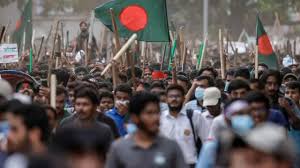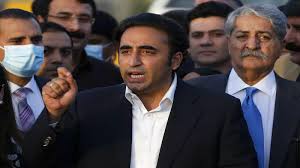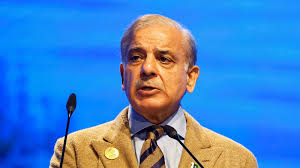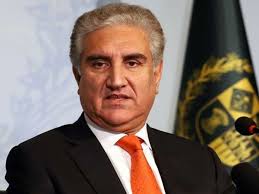India, US have similar concerns about China’s rise: Dhruva Jaishankar
Washington DC [US], June 21 (ANI): Dhruva Jaishankar, Executive Director, Observer Research Foundation (ORF) on Tuesday said that India and the US have similar concerns about China’s rise and its aggression.
In an exclusive interview with ANI, Dhruva said, “India and the US have similar concerns about China’s rise and have been on the receiving end of Chinese aggression and are concerned about Chinese aggression. That is obviously getting the Indian-US to cooperate more closely together. A lot of the cooperation between Indian-US is happening regardless of China.”
Notably, Prime Minister Narendra Modi has arrived in New York today on his first official State visit to the US. Dhruva spoke about the significance of PM Modi and how keenly it will be watched by powers around the world.
“It is the first state visit of PM Modi to the United States. He has visited many times before. The significance of this visit will be to showcase how broad the relationship is and how India and the US are discussing almost every big issue today. Hopefully, we will see some forward movement in defence co-production and defence trade in some critical areas that are very vital to Indian national security,” said ORF Executive Director.
He said that defence is part of a larger issue in many areas of technological security and economic security and US-India is aligning very closely and cooperating very closely.
Speaking on Russia, Dhruva said that it is a “more immediate concern.”
“India is feeling the effects for its defence and national security, for its food security, for its energy security, but also for the larger geopolitical shifts that are occurring. In some areas, I think there’s a deep understanding of that, at least in the US government. But in other areas where there are differences, I think one of the issues I think PM Modi has done in the past, and this is appreciated here, is also candidly discuss those differences. And that I think, will also take place,” Dhruva told ANI.
Notably India-US bilateral trade is now close to USD 191 billion. Moreover, India is the fifth largest economy and is soon going to be the third largest.
Speaking about the free trade agreement (FTA) with the US, Dhruva said, “I don’t think we’ll have an FTA at any time soon for a number of reasons. The US is also not very keen on FTAs with any country, not just India, but particularly with large economies. India, I think, has a sequence of other FTAs that are negotiating, but I don’t think it’s that important. I mean, the US and Europe don’t have an FTA, US and EU, and the US and Japan don’t have an FTA, and these are some of the closest relationships that the US has. So I’m not sure that that is the end goal that is viable or necessary in the near term. There are many other aspects and many other ways of deepening economic cooperation absent in FTA.”
PM Modi is also going to address the joint sitting of the Congress, the first Indian PM to address the Congress twice. In 2016, PM Modi spoke about how India and US have overcome the hesitations of the past during his Congress address.
Speaking about how PM Modi will see that relationship going forward, Dhruva told ANI, “Congress matters a lot because unlike in parliamentary systems such as in India, the Congress is very independent of the presidency and sometimes acts contrary to the presidency. There are also shifts in parties. We have elections in the US every two years, two years in Congress, and every four years in the presidency. So part of addressing Congress is about maintaining that bilateral bipartisan sense of the relationship, appealing to both Democrats and Republicans, both of whom sometimes for different reasons, value the relationship with India. And I think that that is perhaps why it is important to reach out to Congress in that way.”
Speaking on the technological partnership between the two countries, he said, “I think neither India nor US has much choice in that. For the US, if it wants to compete technologically, it will require a level of technical talent, and human capital that it cannot produce domestically. One of the places, one of the most important places it will have to source some of that capital. And this includes researchers and scientists, this includes innovators and business entrepreneurs, it includes technicians will be India. So India is absolutely vital to the US’s future emergence as maintenance of its technological superiority.”
Dhruva said that for India the relationship with the US is vital. “That is the need for technology, for cutting edge technology, the need for investment. India will have to look at countries like the US advanced economies led by the US. And so, for that reason, I don’t think if India and US seriously want to compete as technological powers in the near future, they will require a partnership with each other,” he told ANI.
The ORF Executive Director also spoke about whether the delay of US visas for Indians will be part of the talks between PM Modi and US President Joe Biden.
“Absolutely. The visa issue has been taken up at the highest levels and has been discussed certainly over the past year or two, particularly after the Coronavirus Pandemic. It has been an absolutely top-level issue. And so I think, we will see some, hopefully, some developments on that front and steps taken by the US and by India to help expedite the processing of visas for Indians, including many Indians who want to come study in the US,” said Dhruva.








